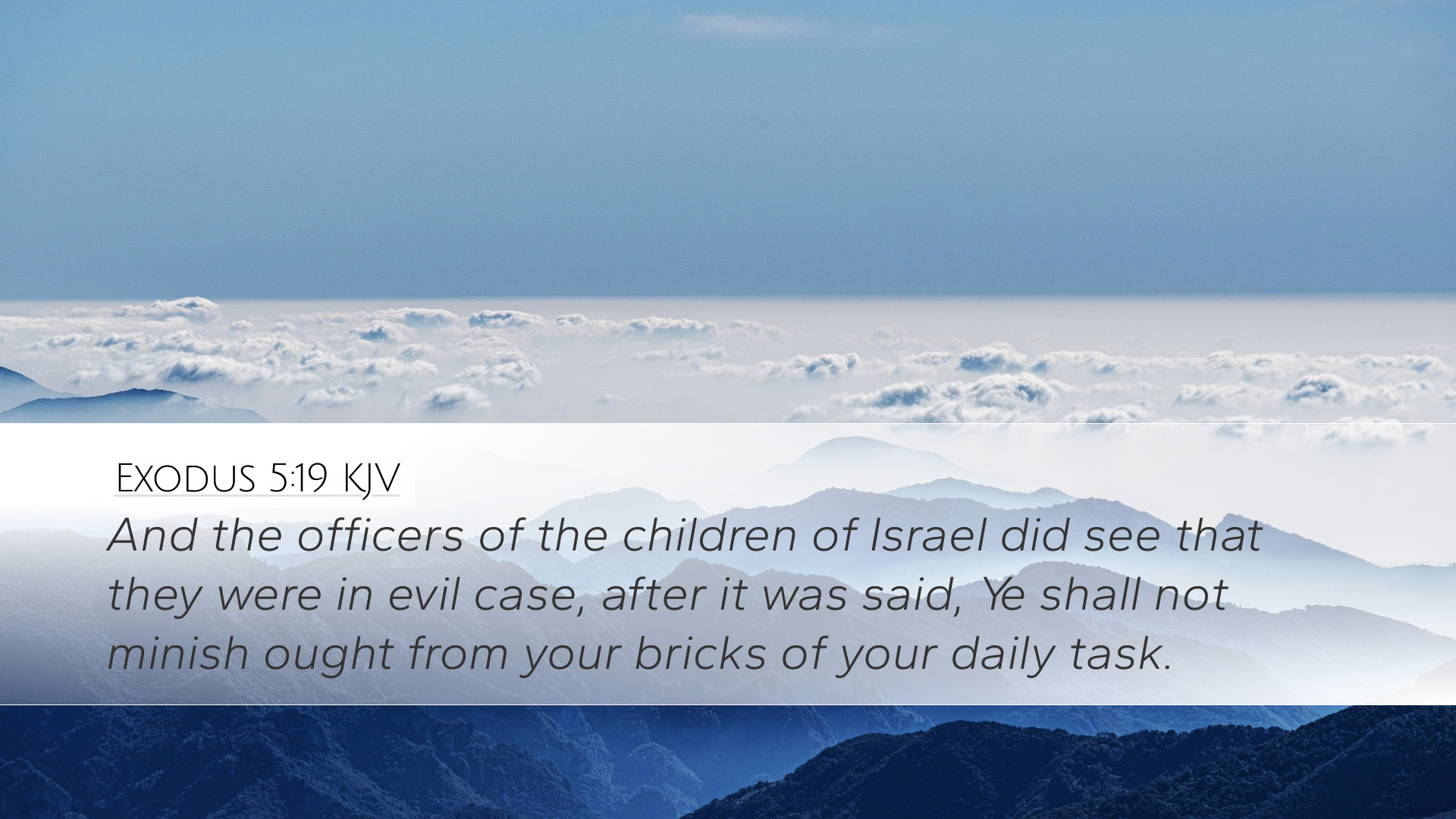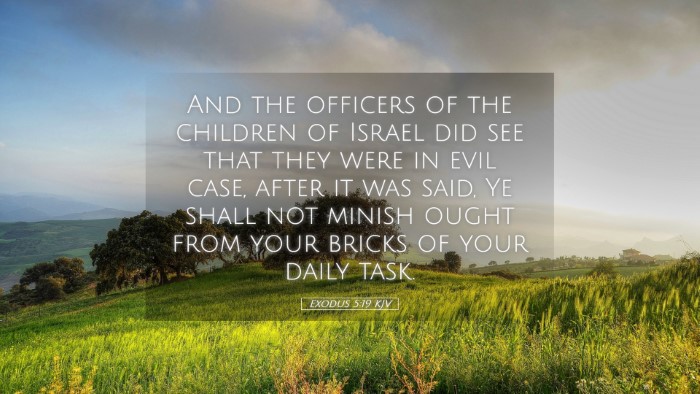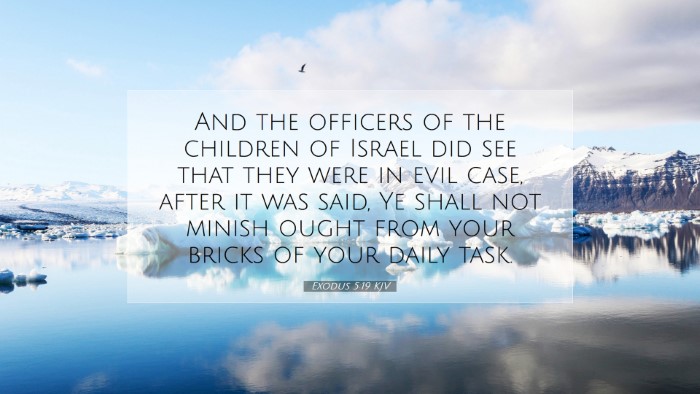Exodus 5:19 Commentary
Exodus 5:19 provides a significant glimpse into the challenges faced by the Israelites under Egyptian bondage. The verse states:
"And the officers of the children of Israel did see that they were in evil case, after it was said, Ye shall not minish ought from your bricks of your daily task." (Exodus 5:19)
Contextual Overview
This verse falls within the narrative of Moses’s encounter with Pharaoh and the subsequent oppression faced by the Israelite workers. After Moses and Aaron demand Pharaoh let the Israelites go, Pharaoh responds harshly, intensifying their labor instead. The officers of the children of Israel, entrusted with overseeing the brick-making, realize the weight of increased burdens placed upon them.
Historical Background
The oppression of the Israelites symbolizes the trial of faith and suffering for righteousness. These laborers, viewed merely as tools for Pharaoh’s ambitions, suffered dreadfully, which serves as a framework for understanding suffering as part of God’s redemptive plan.
Commentary Insights
The following insights aggregate thoughts from renowned commentators:
Matthew Henry
Henry highlights the distress and despair experienced by the officers as they grapple with their precarious situation. He notes:
- Realization of Evil: The officers recognize their "evil case," illustrating a moment of collective awareness among the oppressed. This realization serves as a turning point that heightens their suffering and lack of hope in the immediate future.
- Burden of Leadership: Their leadership role becomes a burden as they must convey the harsher demands to their fellow Israelites, exacerbating their suffering.
- God’s Timing: Henry suggests that such moments of crisis are often precursors to divine intervention, asserting that God works through adversity to bring about ultimate deliverance.
Albert Barnes
Barnes offers a theological reflection on the nature of the oppression faced:
- Increased Labor as Punishment: He notes that the Egyptians increased the workload to punish the Israelites for their pleas for freedom. This punishment reflects Pharaoh's hardened heart and serves to illustrate the depths of human evil when resisting God's plan.
- Perseverance in Trials: Barnes emphasizes the resilience required in the face of such oppression, suggesting this scenario serves as a lesson on the need for faith and perseverance during trials.
Adam Clarke
Clarke delves into the implications of the phrase “evil case” and the perception of the officers:
- Spiritual and Physical Suffering: Clarke notes that the officers' realization signifies a profound understanding of their oppression—not only physically but also spiritually.
- Reflection on Leadership: He reflects on the officers' dual role as both leaders and victims. Their position does not shield them from suffering; instead, it compounds it, illustrating the complexity of leadership in times of trial.
Theological Implications
According to these commentaries, Exodus 5:19 captures the essence of the Israelites' conflict with the Egyptians while also laying the groundwork for defining moments in the Exodus narrative. It portrays a God who hears the cries of His people, foreshadowing a deliverance that is not yet visible but is assured.
Conclusion
This verse serves as a poignant reminder for believers in times of affliction. The descriptions from Matthew Henry, Albert Barnes, and Adam Clarke exemplify that suffering often leads to recognition and eventual revelation of God’s providence. As pastors, students, theologians, and Bible scholars engage with this text, it is necessary to approach it as both a historical account and a spiritual lesson on faith amid adversity.


